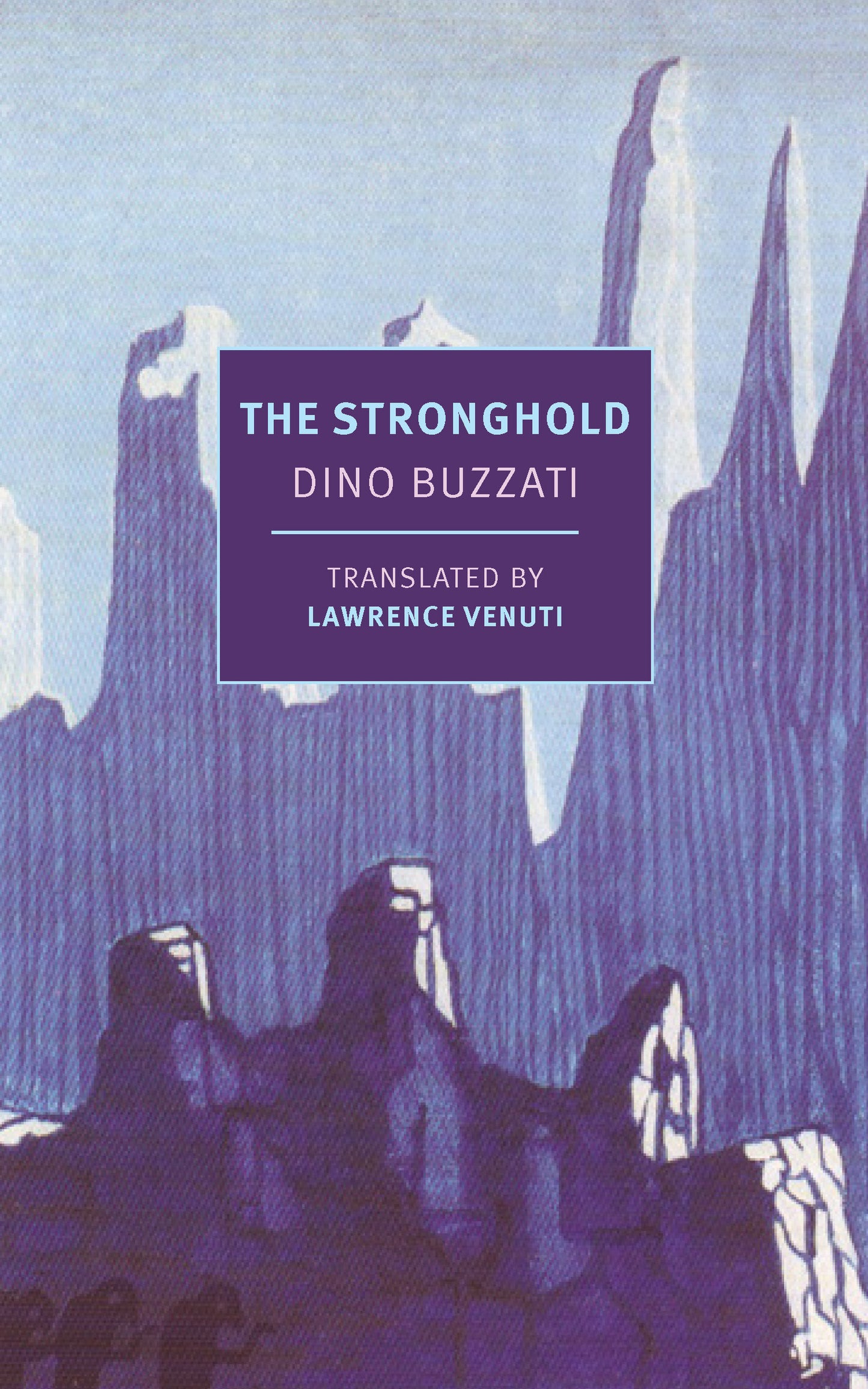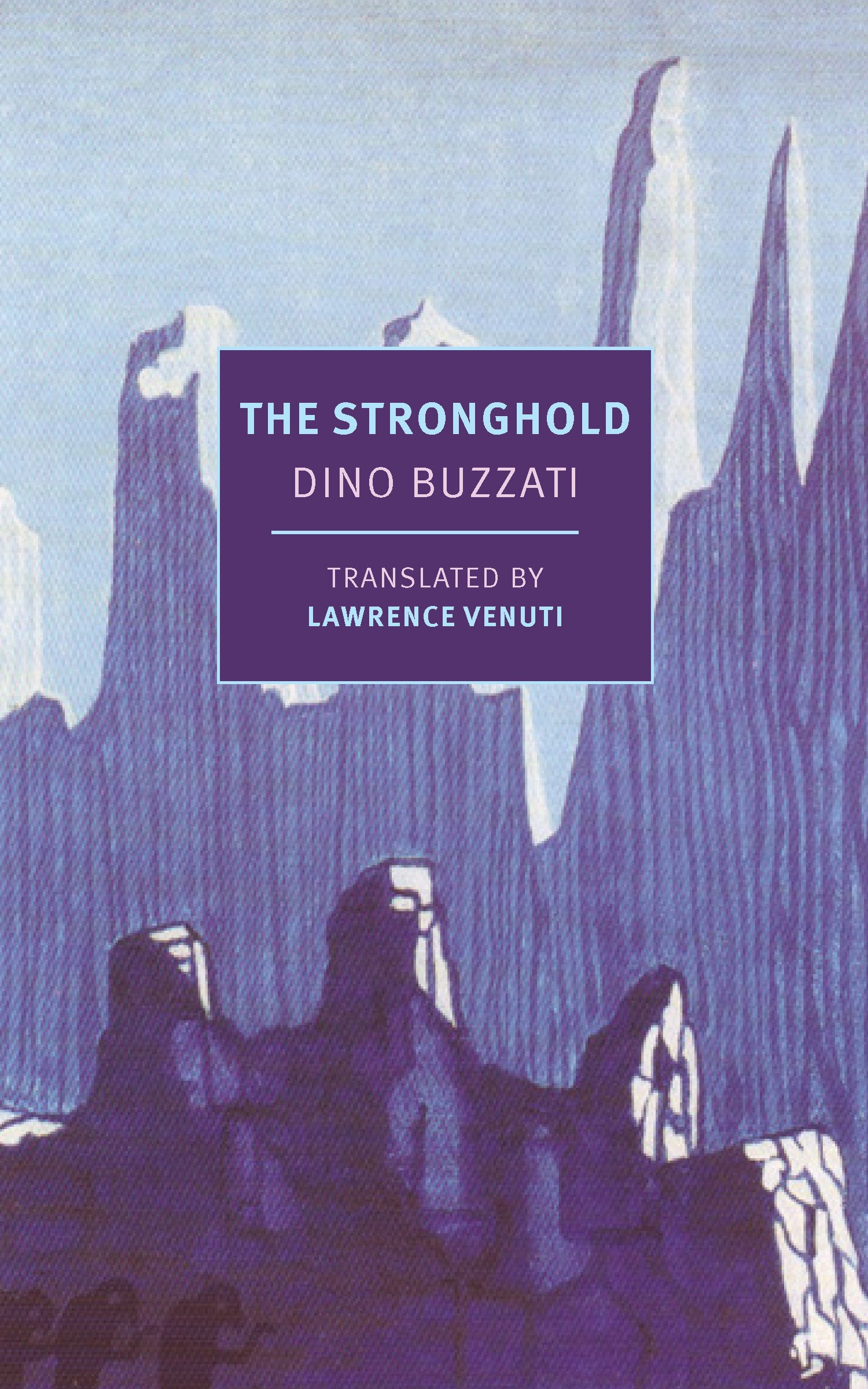Although relatively little happens—tales of stasis can be like that—the skill with which Buzzati conjures unease helps make The Stronghold a remarkably compelling read.
—Andrew Stuttaford, The New Criterion
Suffused with a sense of uneasy magic and imprecise in location or time period... Each scene is sinister and strange, Drogo’s spare and orderly life a counterpoint to his imagination...Venuti’s new translation deliberately evokes the Italian Fascist regime. The current rise in authoritarianism is reason enough for a reissue. I felt I hardly blinked while reading the book and for a long time afterward.
—Cary Holladay, The Hudson Review
The Fortezza’s magic is conjured and sustained by Buzzati’s luscious imagery. Venuti’s meticulous translation projects the cinematic landscape that surrounds the Fortezza—the same landscape that Drogo traverses on the way to his new commission.
—Sarah Gear, Full Stop
For Buzzati, the potential for his story to be “timeless” and “universal” was there from the beginning. And yet, much as he resisted it, he could not escape what Venuti calls the “political unconscious,” something hidden in the dreamlike texture of his work. The success of The Stronghold can be seen in the extent to which Venuti has been able to bring these two distinct aspects together.
—Caterina Domeneghini, Los Angeles Review of Books
That [The Stronghold] has endured across eras and contexts is often put down to its allegorical openness, unanchored as it is from a specific time or place, but this does a disservice to the quality of Buzzati’s writing, the precision of his gaze, and his artistry in translating that gaze to the page….Today, in the context of rising authoritarianism globally, Buzzati’s story of individual struggle against an all-powerful system has once again become a story of our times.
—Matthew Janney, The Financial Times
The Stronghold can feel at times like a deconstruction of one man's frustrations, while at others it evokes the ghosts of a nation’s repressed anxieties. The way in which protagonist Giovanni Drogo witnesses his life vanish before his eyes is both surreal and effective, even as the mysteries of the remote facility where he spends much of his life take the novel into more archetypal territory. In Lawrence Venuti’s translation, Dino Buzzati’s prose easily shifts from tactile to hallucinatory and back again.
—Tobias Carroll, Words Without Borders
Buzzati’s most well-known novel, The Tartar Steppe (1945), receives a fine new translation with an improved title from Venuti. . . . Buzzati manages to make the reader deeply invested in the soldiers’ uncertainty and dread, even as he throws down a blistering critique of fascism. . . . This passes the test of time with flying colors.
—Publishers Weekly
Dino Buzzati . . . is one of the few who have come close to rewriting a whole Kafka parable. [The Stronghold] follows the style, mood and architecture of Kafka's Castle, the story of man struggling hopelessly to enter a stronghold in whose depths, could he but fathom them, lay faith and stability. The difference is that Buzzati's hero struggles from within the stronghold itself.
—Time






